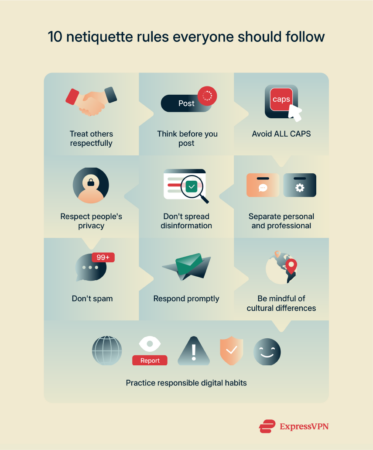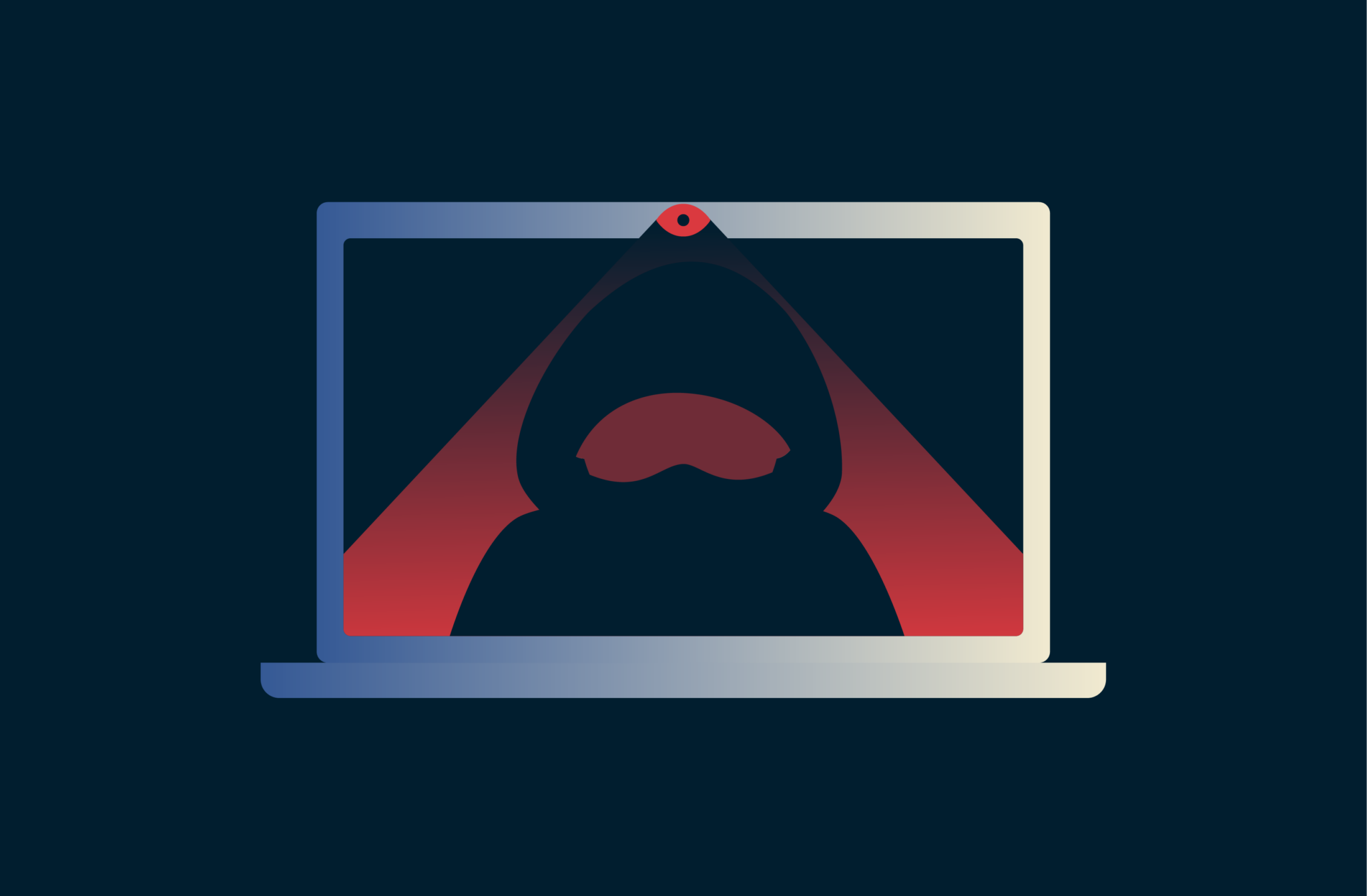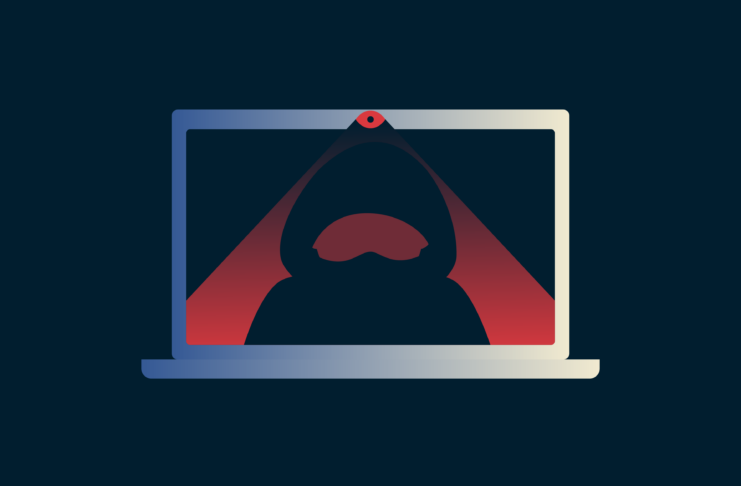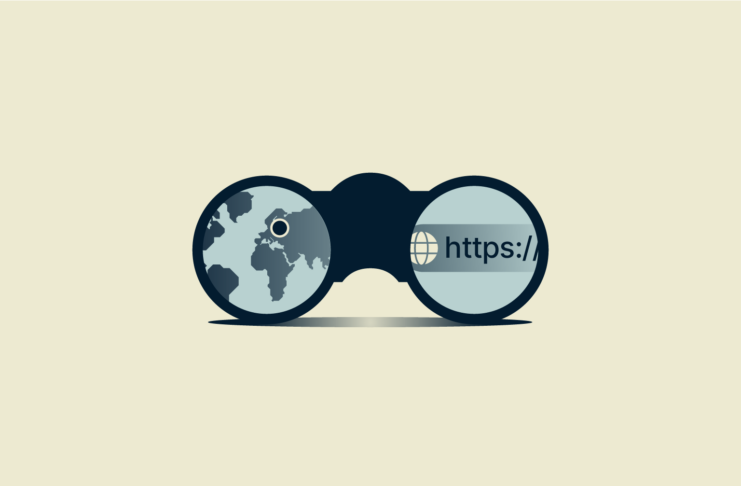People often behave differently online than they do in real life.
Still, many internet users follow a kind of social code when they’re engaging with others online—on social media, via email, in comments or forums, or while working remotely. That social code is known as netiquette.
This guide breaks down what netiquette means, with 10 simple rules anyone can follow to help make the internet a safer, friendlier place.
What is netiquette?
The word netiquette, as you might have guessed, comes from the combination of “net” (short for internet) and “etiquette,” which refers to behaving politely when interacting and communicating with other people. It is the unwritten but widely accepted code of conduct and best practices people should follow to use the internet in a respectful, responsible way.
Why is netiquette important in the digital age?
The internet is an increasingly large part of modern life. Many of us use it daily for both personal and professional reasons, and a large part of our time online is spent engaging with other people, whether chatting with friends and family, posting on social media, sending emails, posting comments, or playing multiplayer games.
These interactions add up and can have real-world effects on the people involved, and that’s why netiquette matters so much. It helps us interact with one another, even from other sides of the world, in a fair and respectful way, leading to better outcomes and fewer conflicts for all involved.
Those who follow netiquette best practices help to create a kinder and more considerate digital landscape—a place where everyone feels more comfortable to communicate, create, and share. They also set positive examples others can follow, and the more people that practice good internet etiquette, the more courteous, constructive, and welcoming the digital world will be.
The evolution of online communication etiquette
The idea of netiquette has been around since the 1980s. Some years later, in 1994, author and tech expert Virginia Shea wrote a book titled “Netiquette,” outlining 10 core rules for people to follow when using the internet and engaging with others online.
Many of Shea’s original rules still apply today, such as respecting other people’s privacy and being courteous and considerate of people’s feelings. However, netiquette practices have inevitably evolved with time, as the internet has grown, changed, and started to play a larger role in modern life.
We’ve seen major social media platforms introduce policies to moderate interactions, governments launch campaigns to combat cyberbullying, educators develop courses on digital communication, and new tools emerge with their own etiquette guidelines.
The rise of new technologies, like bot networks and AI, has also changed netiquette in a big way. Bots are capable of spreading misinformation and hateful or harmful content at an incredible rate, putting more pressure on individual users to counteract that by continuing to be respectful and double-checking their posts to limit the spread of fake news.
10 Netiquette rules everyone should follow
Online etiquette can feel like quite a complicated topic. To keep it simple, let’s look at 10 straightforward, effective rules everyone can follow when using the internet and interacting with others.

1. Treat others with respect online
This is one of the simplest rules, but arguably the most important: treat people well. You may not always agree with them, you may not become best buddies or forge lifelong bonds, but you can, at the very least, show one another some common courtesy.
As with a lot of netiquette rules, the key is to simply think about how you would act in the real world, face-to-face with another human being. Treat them online the same way you would in reality, without resorting to aggressive or rude words or actions.
2. Think before you post or comment
It’s so easy to type out a quick comment online, on a platform like YouTube or X, for example, and send it out for the world to see, without thinking too much about it. But seemingly simple posts can have deep and far-reaching consequences.
That’s why it’s important to think carefully before you share a post or comment. Ask yourself if it’s necessary, if it’s fair and true, and if it adds value in some way. If not, then it may be better to keep it to yourself.
3. Avoid using ALL CAPS (it feels like shouting)
Typing in all caps is generally frowned upon as far as netiquette experts are concerned, and it’s not hard to see why. Think about what you feel when you read a message written entirely in capital letters. Such messages often come across as angry or aggressive, as though the writer or sender is yelling at you.
Even if that’s not your intent, it’s often the way that people interpret all-caps messages. So, turn off Caps Lock when writing posts or comments. If you need to add emphasis, use other methods, like an exclamation point.
4. Respect other people’s privacy
Online privacy is an increasingly sensitive and important subject to many people. With the rise of data leaks, breaches, and companies trading user data among themselves, people are rightfully worried about who has access to their info and how it might be used.
Individual users can do their bit to support people’s privacy by being respectful of it. Before you share a picture of someone on social media, for example, check with them first to get their approval. Avoid snooping on others’ devices or personal accounts.
5. Check facts before posting
The digital world is in the midst of a major misinformation crisis. Bad actors around the world can now use technological tools—like armies of social media bot accounts—to spread lies and so-called fake news far and wide, influencing opinions, politics, and more.
To help fight misinformation and to practice good online etiquette, always double-check the information you share online. Especially on social media networks, avoid simply reposting or sharing claims—particularly controversial ones—without verifying them first.
6. Keep personal and professional communication separate
You might chat with friends and like-minded folks online about things that interest you while also running an online business or working remotely.
If so, it’s important to keep personal and professional communications distinctly separate from one another. It’s fine to be casual in your personal chats, but maintain a professional, formal tone for working messages and follow official policies on file sharing, communication, etc.
7. Avoid spam and chain messages
Spam refers to unsolicited and unwanted communications. Plenty of email inboxes are flooded with spam messages. Forums and digital discussion threads can also fall victim to spammers who post excessive amounts of unwanted, uninteresting information again and again.
Some brands or businesspeople use spam to raise awareness of their services or build contact lists. However, this isn’t good practice. It’s also not considered very netiquette-friendly to forward spammy or nonsensical chain emails to your contacts.
8. Respond to messages and emails in a timely manner
If someone speaks to you in the real world, it would be very unusual to simply ignore them, walk away, and then respond a few days later. However, online, users have more freedom in terms of how and when they can respond to messages and emails.
It’s fine to wait a little while to get back to someone if you’re busy or unable to respond immediately. But don’t leave it too long. Try to respond to friends, family, and colleagues in a timely fashion, especially regarding matters that have some urgency or importance.
9. Be mindful of cultural differences in online communication
It’s important to remember that the digital world is a truly global space. You can log onto any social media site, online game, or digital platform and encounter a whole melting pot of people from across the world, each with their own background, beliefs, and culture.
Keep that in mind as you engage and interact with others. Acknowledge that people won’t necessarily see the world in the same light as you and that they may follow very different codes of communication conduct, which are all worthy of respect and fair treatment.
10. Be a responsible digital citizen
This final rule is almost a summation of all the others: being a responsible digital citizen is all about following best practices in all of your online interactions and activities. That includes things like:
- Following the rules and policies of the platforms you use;
- Informing yourself, so as not to spread misinformation or fall victim to it, like fake news and ghost job posts;
- Setting a good example for others to follow;
- Using report and block tools, where available, to combat bad behavior;
- Being inclusive and tolerant toward others;
- Practicing smart cybersecurity habits, like using VPNs, strong passwords, and two-factor authentication.
Consequences of poor netiquette
So, we’ve explained what netiquette is and how it’s practiced. But you might still be wondering why it matters and what kinds of consequences those who fail to behave politely online could face. Here are some examples.
Social and professional repercussions
Someone who behaves poorly online may feel the repercussions in their real social and professional lives. If people see someone being hateful on social media, for example, they might see them in a less favorable light in real life, being less likely to befriend or do business with them. Some people have even lost their jobs over improper use of online tools and resources.
Impact on digital reputation
On the internet, everything leaves a trace. Even if you delete a social media post, for example, traces of that post will still exist, and everything you do online can shape and influence your digital reputation. This, again, impacts how people see and interact with you, and having a negative or unappealing reputation can make it harder to forge connections and get ahead.
Cyberbullying and online conflicts
While not physical, cyberbullying can be just as serious as in-person bullying, potentially leading to severe mental and emotional distress for its victims. If you easily get into arguments, share too much online, or make mistakes in your interactions, you could be targeted yourself or even be seen as a cyberbully, with risk of legal ramifications.
Risks of spreading fake news and misinformation
Those who spread fake claims online should remember the story of the boy who cried wolf. If you share too much misinformation, you may develop a reputation for it. People will see you as an untrustworthy person and refuse to believe things you post in the future. This behavior also contributes to larger societal problems, like the proliferation of hate toward certain groups or individuals.
Netiquette for different online environments
Next, let’s take a closer look at netiquette in action, exploring some best practices and helpful do’s and don’ts for activities like working online, gaming, emailing, and more.
Netiquette in emails and professional communication
Good email etiquette is generally about being polite and punctual in your email interactions. Avoid spamming your contacts with unwanted, unsolicited information. Respond to people in a timely fashion, whenever you can, and maintain a polite and friendly tone.
Try to be concise in your messages to show respect for other people’s time, and use subject lines that clearly indicate what your messages are about. Avoid writing in all caps, and make use of BCC (blind carbon copy), where appropriate, to hide recipients’ email addresses and show respect for their privacy.
Social media netiquette: Do’s and don’ts
Some of the big do’s in social media etiquette are:
✅ Respect the privacy of other users and don’t share personal information or images without consent.
✅ Be mindful of the people your posts and comments could reach and how your words might affect them.
✅ Think about the value and meaning of posts you share before you publish them for all to see.
✅ Engage with others in a thoughtful manner, offering insights, wisdom, and debate, without resorting to hurtful comments or name-calling.
✅ Double-check grammar and spelling in your posts and comments before you share them.
Meanwhile, here are a few don’ts:
❌ Avoid oversharing, as you might inadvertently post something that puts you or another person in an awkward position.
❌ Don’t bully, intimidate, or harass other users. If you disagree with or dislike someone, simply ignore or block them.
Netiquette for online forums and communities
In discussion-based spaces, like forums and chatrooms, etiquette is of the utmost importance. Most forums have clear rules regarding how to post, and users who fail to follow the rules may quickly find themselves banned.
To avoid this, keep these tips in mind:
✅ When you join a new forum or community, read the rules. Alternatively, you can ask one of the moderators to advise you on what’s allowed and what’s not.
✅ Be respectful toward others. Forums are built around debate and discussion, but users should strive to avoid personal attacks.
✅ Respect others’ time. Thank those who help or respond to you, and play your part in making the space a helpful and welcoming one.
✅ Be mindful of your words. Think not just about how you mean them and what you want to say, but how others might interpret them as well.
Gaming netiquette: Playing fair online
Online games should be fun—but they can sometimes feel like toxic, unwelcoming spaces where some players feel frightened to speak up or even take part. To help make gaming more welcoming, try to:
✅ Remember that it’s just a game, and the purpose is to have fun. Play fair and follow the rules.
✅ Be mindful that players may have different skill levels, backgrounds, and things going on in their lives that you can’t possibly know.
✅ Treat other players the same way you’d like to be treated.
✅ Avoid flaming, trolling, or hateful comments. Instead, wish players luck and use phrases like “GG” (Good Game) at the end.
Video conferencing and virtual meeting etiquette
More and more people take part in video conferences and virtual meetings nowadays on platforms like Teams and Zoom. Follow these video conferencing netiquette tips to have the most professional, productive meetings:
✅ Be punctual. Log into your computer 10–15 minutes before a meeting is scheduled so you’re ready to go once it begins.
✅ Test your camera and microphone beforehand and ensure that your hardware is working as it should to avoid any delays to the meeting.
✅ Try to sit in a quiet, well-lit space for video calls and conferences. Dress professionally, and keep background noise down to avoid disturbing other participants.
✅ Be mindful of body language. Keeping your eyes on the screen shows other participants that you are engaged and listening.
Netiquette for remote work and virtual teams
Remote work is on the rise. If you work from home or on the move, you need to be even more au fait with the rules and standards of netiquette to avoid negative consequences.
Importance of online professionalism in remote work
When working remotely, in the comfortable, familiar setting of your own home, some people naturally tend to develop a less formal mindset than they would if they were in an office. However, it’s still important to be professional in your communications and interactions, especially when emailing colleagues or clients, and in terms of punctuality.
Email and chat etiquette for remote teams
Remote workers should generally follow the same kind of chat and email etiquette that they would if they worked in an office environment. That means being punctual and timely in your responses, using polite greetings and formats in your messages to others, and keeping a formal tone across your interactions.
Best practices for video calls and virtual meetings
As mentioned earlier on, when engaging in video calls, it’s best to be punctual and prepared to avoid any disruptions or delays. Engage actively in discussions and practice good body language, like keeping your eyes on the screen and avoiding fiddling with phones or getting distracted when other people speak.
Managing time zones and global communication
If you’re part of a remote, international team of workers, remember that some of your colleagues may operate in totally different time zones to you. You can’t necessarily expect them to be online and ready to respond to your messages at the same times you would, for instance. Be mindful of your teammates’ time zones to avoid delays or confusion.
How to give and receive constructive feedback online
As part of your online work, you may have to provide feedback to others or receive it yourself. When giving feedback, it’s important to remember how your words may be read and interpreted. Be mindful and choose your words with care to get your message across fairly. Similarly, when receiving feedback, listen (or read) carefully and ask questions if anything’s unclear.
Teaching kids and teens about netiquette
Today’s younger generations are growing up with the internet as a fundamental part of their lives. To help them avoid the many risks of poor online etiquette, it’s crucial to educate them about how to behave, both for their own benefit and the welfare of other online users.
Why it’s important to educate children on digital behavior
There are so many reasons why children and teens need to know and practice good netiquette:
- For safety: Netiquette is about more than being polite. It’s also about being safe. Teaching children to use strong passwords or about the power of VPNs, for example, can help them establish secure, responsible digital habits for the future. It can also help them avoid digital risks, like cyberbullying, predators, and malware.
- For positive engagement: The internet can be a beneficial force for young people, helping to educate and inspire them and potentially introducing them to lifelong friends and valuable skills. But these benefits can only be enjoyed through sensible, responsible usage, learned through proper netiquette practices.
- For responsible digital citizenship: Younger generations will shape the internet as we know it in the years to come, for better or for worse. Teaching them to use it responsibly and setting good examples for them will help them build a better, more welcoming and positive digital landscape.
Simple ways to teach kids about online respect
To help children understand the importance of netiquette, employ these helpful tips and tricks:
- Set an example: Be a role model to your children. Show them the right ways to use the internet and interact with people online so they know what to do.
- Explain the risks: Explain to your children the dangers they could incur from irresponsible internet usage, and not only how it could harm them, but others as well.
- Establish boundaries: Set clear rules about how the internet should be used, and enforce them. This might include time limits, app/website restrictions, etc.
- Use real examples: Share real news stories with your children, where appropriate, to highlight the risks of bad online habits, like cyberbullying or privacy infringements.
The role of parents and teachers in promoting netiquette
Parents and teachers have crucial roles in guiding young minds and showing them the right ways to behave online. These are some of the most important early role models in any young person’s life, and many children look to the teachers and their parents to see how they should behave and separate right from wrong.
As such, it’s important for those in these groups to acknowledge their responsibility and seek ways to effectively educate the children who look up to them. This can include, as touched on earlier, setting a good example yourself, talking to children about the benefits and risks of the online world, and using parental control tools or apps to monitor children’s online habits.
Best online etiquette tools and resources
These days, you don’t have to learn and implement best netiquette practices on your own. You can use various helpful tools to assist you along the way.
Grammar and spell-checking tools for professional communication
Grammar and spell-checking tools are great for checking emails, posts, and more before you send or publish. They catch typos, fix grammar, and help polish your text. Many are available as browser extensions that correct your grammar and spelling as you type your email or social media post.
AI-powered tools for tone and politeness checking
AI tools can also help refine your tone and wording. You can use AI to, for example, give a constructive criticism message a helpful and friendly tone or to dress up your business emails and make them sound more formal and polite prior to sending.
Secure messaging platforms with built-in etiquette guidelines
Most major messaging apps don’t include built-in etiquette guidelines. However, many have clear policies about acceptable messages, with report and block tools to deal with spam and harassment, such as Signal and WhatsApp.
Community guidelines and moderation tools for forums
If you run or moderate a forum, there are many standard sets of community guidelines you can copy or modify slightly to help set the standards for your space. There are now also autonomous, AI-powered moderation bots and tools to weed out spam and bad actors.
FAQ: Common questions about netiquette
Is netiquette the same across different platforms?
The general ideas are the same, with the core themes of being respectful and mindful, thinking about others, and having a responsible approach. However, the exact practices can vary for different activities, like gaming, emailing, and participating in forum discussions.
What is the difference between etiquette and netiquette?
Etiquette is the general code of conduct and polite behavior in real life, while netiquette is exclusively focused on the digital world and internet interactions.
How can I improve my netiquette?
You could read up on tips and tricks to be more mindful and respectful or follow examples of other users you see online.
When should kids start learning about netiquette?
Ideally, as soon as they start using digital devices and engaging with other people online, or beforehand, once they are capable of understanding such concepts.
What are the most common netiquette mistakes?
Common mistakes include failing to respect the privacy of others, using foul language, spamming, and unintentionally spreading misinformation.
What are the biggest mistakes in digital communication?
Some people tend to be too casual or lax in their digital communications, not responding in a timely manner to their correspondents or using language that does not quite fit the occasion.
How can businesses create and enforce netiquette guidelines in remote teams?
It’s up to team leaders to introduce new recruits to company policies regarding communication, appropriate language, and what is expected of workers when it comes to engaging with others in a polite and timely way, responding to emails, participating in meetings, etc. Feedback sessions can be used to enforce and monitor adherence to these guidelines if needed.
Are there legal or ethical concerns related to netiquette?
Absolutely. Poor netiquette practices, like not respecting other people’s privacy or posting lies or content without permission of its creators, may lead to legal consequences and reputational damage for those involved.




















